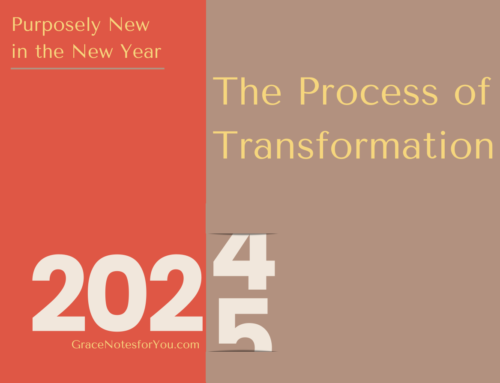On a recent hiking adventure with my husband, I suggested we take an alternate route. My husband was agreeable, and we began the incline up the mountain. What neither of us knew at that time, however, was my brilliant idea would lead us to thick, muddy trails. I cannot adequately explain how much I deeply regretted my suggestion. Yet dwelling on my bad idea wouldn’t help get us down the mountain any faster. So, we did the only thing we could do. We walked forward through the mud until we eventually made it to dry ground and finished the hike muddy and thankful.
As I reflect upon this experience, I realize that at various seasons and for various reasons, we all encounter challenging paths. By this I’m referring to paths that are not only muddy, but also hurtful, painful or confusing. And when we find ourselves on these paths, whether due to unforeseen circumstances, or personal poor choices, we are often led to rehearse the past, wondering what went wrong, what we did wrong, and how we can possibly move forward.
A Word of Hope
During a dark season in Israel’s history, God’s people found themselves on an incredibly despairing path of their own. Sadly, due to sinful choices, they were living as captives in Babylon. And they were hopeless. But God. But God who is faithful had a plan to deliver His people. And because of this, He sent the prophet Isaiah to them with this message of hope,
This is what the Lord says [to you]—“Forget the former things; do not dwell on the past. See, I am doing a new thing! Now it springs up; do you not perceive it? I am making a way…” Isaiah 43:18 NIV
As I read these words I am reminded of the overwhelming grace and kindness of God!
Not only did He choose not to rehash the Israelites’ past, but additionally He told them to forget it as well. Why? Because He knew dwelling on the past would only hinder them from seeing the new and exceedingly better things He had planned for them.
Paul’s Wise Counsel
If anyone understood the critical importance of forgetting the past, it was certainly the apostle Paul. Included in his lengthy list of horrific choices was persecuting and imprisoning followers of Jesus and ultimately overseeing the death of the apostle Stephen. Yet, following his radical conversion, he was determined to forget his past and move forward. How would he accomplish this? There is truly only one way, which he shared in a letter to the Philippian church.
[My] dear brothers and sisters… I focus [my energies] on this one thing: Forgetting the past and looking forward to what lies ahead…” Philippians 3:13 NLT
This was Paul’s wise counsel to his friends. To be clear however, his decision to forget was not intended to erase his past as if it never happened. Instead, it was for the greater purpose of embracing his new identity and calling in Christ.
Forgetting for a Purpose
While it’s true the Bible has a good deal to say about remembering, there are also times we are exhorted to forget, yet not without a purpose. And we clearly see this in both Isaiah’s prophecy and Paul’s wise counsel. Yes, we can and should learn from our past. But at the same time we cannot dwell on the past while simultaneously moving forward towards the future. It’s just not practical, nor is it productive. When we endeavor to operate in this way—we only become frustrated, anxious, hopeless, and emotionally, physically, mentally and spiritually stuck. And God knows this to be true of us. And because of this, at times He tells us to forget, but only for the purpose of empowering us to move confidently forward into the future He has prepared for us.
Commit to Forget
You may be wondering as I have, and at times still do, how it is possible to forget the past, especially the past that is connected to hurt, pain, sadness, regret or condemnation. The truth is it’s not easy, but the good news is, it is possible. Yet it requires personal choice and daily commitment. Thankfully for us, we are not alone in this endeavor, as God has empowered us with His Spirit, and provided us with His Word. These two powerful forces at work within us equip us in releasing the past so we can live fruitfully and effectively in the present and into the future.
The following are just a few practical, yet powerful steps we all can and must commit to in forgetting the past and embracing the future:
- Confess everything to God
- Commit to forgive yourself and others
- Pray about everything
- Replace worry with worship
- Choose to be thankful
- Trust God in all things
In closing, I am reminded that God is faithful. He always does exactly what He said He would do. However, it may not be on our personal timetable. And truthfully, it’s usually not in a way we would have ever expected. Yet, God remains faithful. And this is the sole reason we can be confident as we begin a new year with Him.
So, let’s commit to “forget the former things” and let’s open our eyes to the new and beautiful things God is doing in, through and for us. He is making a way!
Pray
Faithful Father, thank you for your unfailing mercy that is new to me not only at the beginning of each year, but also at the start of each day. I take confidence knowing you are with me, for me, and working all things, including my trials and my triumphs, together for my good and your glory. Empower me to walk purposely with you in this new year. In Jesus’ name I pray, amen.
Extend grace to others by sharing this post with a friend.
Question of the Week
What “former” thing do you need to forget in order to walk purposely forward this year?
Share your response HERE!






Thanks for bringing me to ground zero so I can reflect on the mercies of God and His grace.
Nathan and I are visiting Katie now. She lives near Savannah. I’m especially enjoying Katie’s three boys!